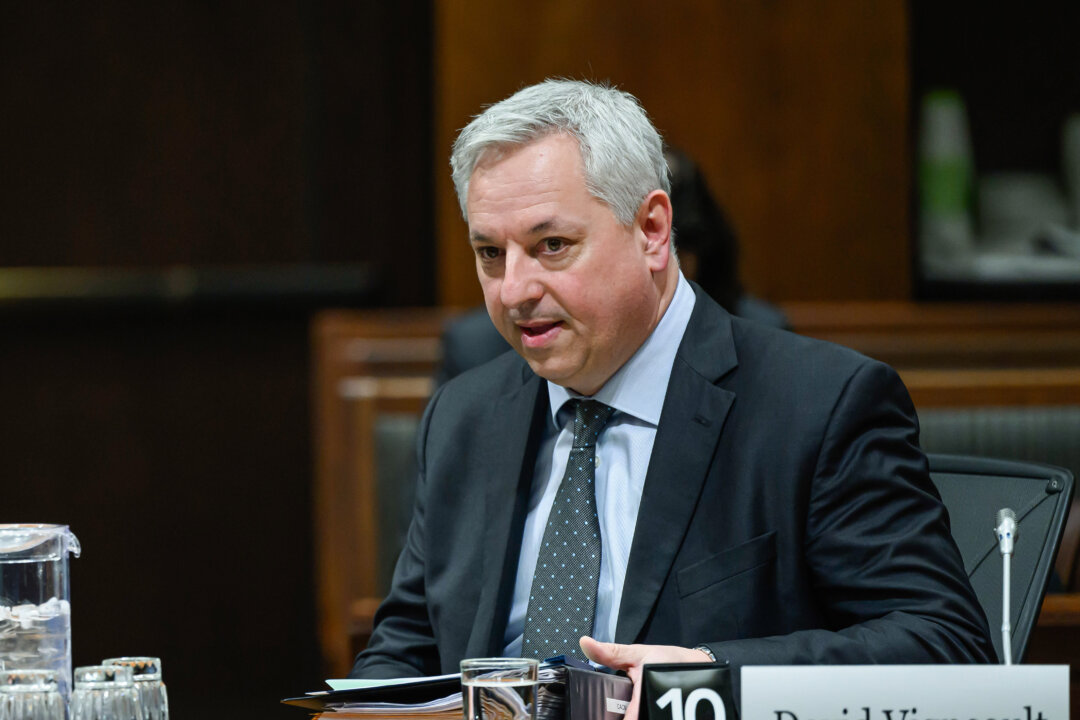Politics·New
Public Safety Canada says a new process to permit development workers to gain exemptions from terror financing laws in order to work in Afghanistan is expected to be in place by the end of the year.
This summer will mark three years since fall of Aghanistan to Taliban

Dylan Robertson · The Canadian Press
· Posted: Apr 27, 2024 11:21 AM EDT | Last Updated: 23 minutes ago

Ottawa has plans to finally stop blocking Canadian development aid to Afghanistan this year.
But by the time its new system is fully up and running, the Taliban will have been in control of the country for about three years.
Humanitarian organizations say that's an interminable delay for those who need help, especially since other countries moved more quickly to unblock aid flows.
"It's extremely frustrating, if I can put it as nicely as I can," said Asma Faizi, head of the Afghan Women's Organization.
Her group supports Afghan newcomers to Canada, as well as women living in Afghanistan and in exile in nearby countries. It also runs an all-girls orphanage in Kabul, which has been blocked from Canadian aid since the Taliban takeover.
"Canadian organizations that want to work inside Afghanistan are ready, willing and able to work. But they are prohibited," said Faizi.
WATCH | Looking back on Canada's war in Afghanistan: 
Canada marks 10 years since the Afghanistan military mission's end
As the law is written, aid workers are vulnerable to criminal prosecution if they pay taxes on labour or goods to Afghanistan's Taliban government.
Doing so would amount to providing financial support to an entity that Canada lists as a terrorist organization.
The United States, Australia, the European Union and the United Kingdom all created carve-outs to their own terrorism laws by February 2022 to allow aid to flow — about six months after the Taliban took full control.
In June of that year, a multi-party committee of members of Parliament called on Ottawa to follow suit.
Since then, Afghanistan has faced a deteriorating humanitarian crisis caused by natural disasters, widespread food insecurity and an economic collapse as the international community largely shuns the current government.
The United Nations has determined that 23.7 million people in the country currently need humanitarian aid.
Last June, Parliament passed a bill that enacted a blanket exemption to terrorism financing laws for humanitarian workers providing life-saving aid in response to emergencies.
It also committed Ottawa to eventually create a permit process for development workers, such as those building schools, to apply for exemptions to terror laws.
For World Vision Canada, the delay in getting that process set up has meant proceeding with health and nutrition work in Afghanistan on a humanitarian basis but pausing development projects aimed at advancing women's rights.
The blanket exemption just isn't enough for some aid groups, said the group's policy director Martin Fischer.
Ottawa has yet to provide a clarity on what it defines as humanitarian versus development work. The exemption that is already in place only applies to the former.
"There's still this passing of responsibility," he said, that requires aid organizations to determine for themselves what they need to do to protect themselves from prosecution.
He lamented that the government is not using long-standing definitions issued by Global Affairs Canada or the UN, which lay out the difference in terminology.
New process under construction
"The problem arose when they decided that Canada was going to take this unprecedented route of creating a very complex and bureaucratic process," Faizi said.
A more flexible approach is needed, she said, and one that recognizes "some of the money" could fall into the wrong hands even as aid organizations try to save lives.
A report from Public Safety Canada published last week says "efforts are ongoing to operationalize the authorization regime."
It says the process requires sorting out privacy rules and ensuring the permit process passes an equity analysis.
WATCH | Struggle of Aghan refugees in Pakistan: 
Time runs out for Afghan migrants stuck in Pakistan
Ottawa "intends to launch this regime by spring 2024 and will work towards achieving full operational capacity by late 2024," the report reads.
Asked for more detail, a spokesperson for the department said applications will be accepted in the spring, and "staffing efforts are currently underway to further bolster the team administrating the regime."
The process has fallen behind Ottawa's own benchmark.
The federal Liberals budgeted $5 million for the fiscal year that just ended in order to vet the permits. Another $11 million was committed for the financial year that started this month.
Ontario Sen. Ratna Omidvar advocated for the bill.
She said she is "relieved" that some aid is arriving as a result of the humanitarian exemption, but hopes Ottawa moves quickly to ensure more organizations can help.
"I'm concerned about the amount of time that it is taking us to develop the systems and the protocols," Omidvar said.
"Whenever public safety and security is in the mix, things will take longer for the smaller fish — always."
Canadians have a special duty to the Afghan people, the senator said — and especially women — after two decades of Ottawa helping train teachers, journalists and politicians.
"Everything fell off the cliff" when the Taliban took over, she said.
"Canadians need to understand, accept and acknowledge that we were complicit in all of this."

 1 week ago
26
1 week ago
26









 English (US) ·
English (US) ·  Turkish (TR) ·
Turkish (TR) ·